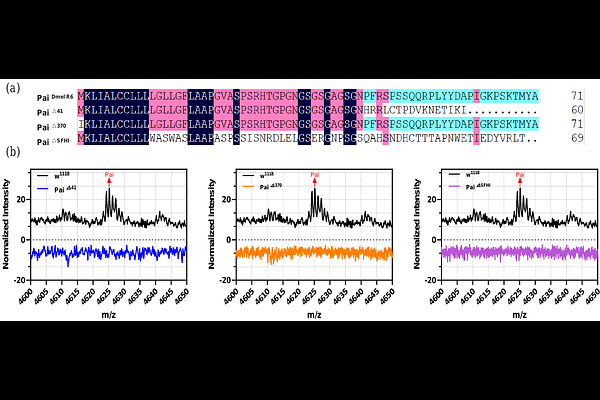Functional Characterization of Paillotin: An Immune Peptide Regulated by the Imd Pathway with Pathogen-Specific Roles in Drosophila Immunity

Functional Characterization of Paillotin: An Immune Peptide Regulated by the Imd Pathway with Pathogen-Specific Roles in Drosophila Immunity
Tian, Y.; Yue, X.; Jiao, R.; Hanson, M. A.; Lemaitre, B.
AbstractInsects, such as Drosophila melanogaster, rely on innate immune defenses to combat microbial threats. Antimicrobial peptides (AMPs) play an important role in limiting pathogen entry and colonization. Despite intensive research into the regulation and biochemical properties of AMPs, their exact significance in vivo has remained uncertain due to the challenges of mutating small genes. Fortunately, recent technologies have enabled the mutation of individual AMP genes, overcome previous obstacles, and opened new avenues for research. In this study, we characterized one novel host-defense peptide, Paillotin (IM18, CG33706), using loss-of-function mutants. Paillotin is an ancient host defense peptide of Diptera, regulated by the Imd pathway. Loss of Paillotin does not impact the activity of either the Imd or Toll pathways. Importantly, we found that Paillotin mutants are viable but exhibit increased susceptibility to specific infections, particularly Providencia burhodogranariea. Paillotin was further found to contribute synergistically to defense against P. burhodogranariea when combined with other AMPs. However, we did not detect direct microbicidal activity of Paillotin in vitro in our hands. Taken together, our findings identify Paillotin as a novel host defense peptide acting downstream of Imd signaling, advancing our understanding of the Drosophila antimicrobial response.